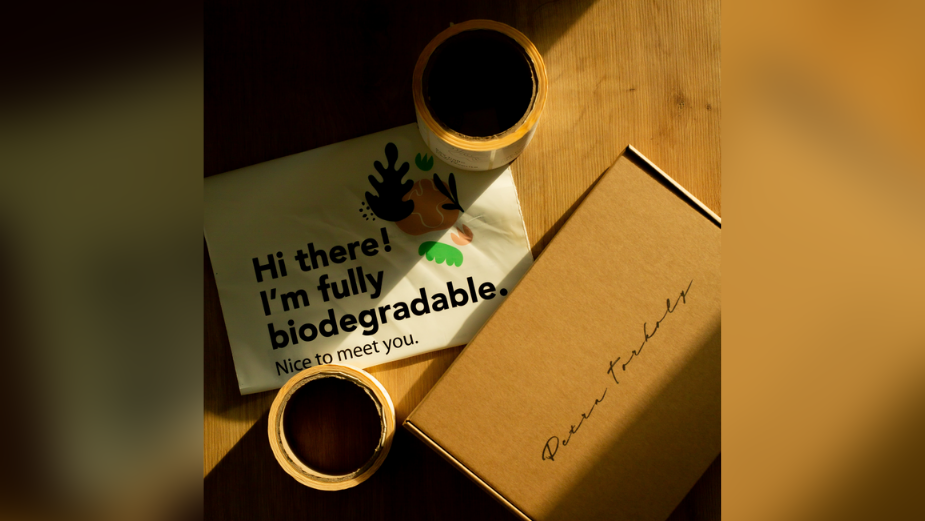
Sustainability Success Lies in Relationships

The pandemic has without doubt been traumatic, but it has had a huge impact on what kind of change we see as possible and how we envision it happening, and in particular has shifted the global view on climate change. Its prevention now seems somehow more do-able - people are galvanising their efforts to embrace brands that are transparent and engaging in their efforts to use more sustainable materials and production methods. They are proactively reducing their carbon footprint and cutting out wasteful materials like single-use plastics.
We’re crossing a threshold from one world into the next, and the next has less disposable 'stuff' in it.
It’s the brands who are creating a circular economy that are winning
As global markets respond to increasing demands for waste-cutting measures, many brands have adopted practices that create a more circular economy, not only in manufacture and supply, but also in meaningful brand experiences that foster deeper connections, offer more than just a “lifestyle choice”, and most powerfully, have the potential to change the way we live and do things.
Here are some brands that are instilling an appreciation for their products’ lives and continued existence, and doing it in a way that favours experience first. They are embodying an ideological shift from simple recycling and waste-cutting efforts to a deeper relationship with the products – the stuff – in our life.
Patagonia: Product Life and Active Engagement
Patagonia has long cultivated its brand’s engagement with environmentalism, sustainability, and “outdoorsiness”. In recent years, their Worn Wear campaign has been a hugely successful way of minimising waste, but has also actively forged new kinds of experiences and relationships with a clothing brand.
Patagonia’s Worn Wear Tour has been hitting the road and the slopes every year with an all-terrain wooden trailer, offering free repair of rips, tears, loose buttons, busted zippers and other damaged gear. When social activities resume, the Worn Wear Tour team will pick up where it left off, teaching people how to fix their own gear and mend their own clothing, while educating them on how to maintain the condition of their equipment, all with the aim of encouraging participants to extend the lifetime of their clothing and equipment. This is brand activation, but it also establishes a kind of collaboration between product-makers, brands, and end-users that creates a shared responsibility for the byproducts of consumption, and asserts that ownership is more than just purchase and possession; it is stewardship.
Fairphone: “Right to Repair” and Turning Black Friday Green
The sustainability ingrained in the idea that ownership is a kind of stewardship has driven the recent success of the “right to repair” movement. Globally, lawmakers are currently considering right-to-repair legislation that could affect manufacturing and legally oblige producers to make spare parts available to consumers – the first time such a right for repairs is couched in legal terms.
Fairphone is amongst the disruptive tech companies embracing this movement and finding creative ways of putting customers’ rights and experiences first. With online forums challenging customers to see how long their phones can last and providing do-it-yourself guides to phone repairs, Fairphone encourages tinkerers and innovators to create homemade cases, mounts, and accessories and share 3D printing models and plans, “all geared towards making your Fairphone fit more seamlessly into your life and to enable you to hang onto it even longer.”
With their “turning black Friday green” campaign, Fairphone confronts an ‘out with the old, in with the new’ mentality. “But,” asks Fairphone, “where is that supposed to be…’out’?” With 1.4 billion phones sold globally each year, and only 20% recycled, Fairphone set off on a double-pronged engagement campaign to collect 20,000 old phones for proper recycling while inviting their community to share stories of old and treasured items that have lasted and grown better with time.
We might not have time to learn to repair everything we use, and some things are more complicated than others to fix. Getting things fixed can also be costly and take time, even when brands offer efficient services. More and more, the product and service are becoming one, and the benefits –in terms of creating a more circular economy– can also be broader-sweeping than individual satisfaction.
Swapfiets: The Product-Service Wrap and the Circular Economy
Swapfiets is a Dutch start-up that grew out of a simple thesis project and a simple mission: “to make cities more livable”. The “Netflix of bicycles” provides a bicycle subscription service, replacing or repairing your bike when things go wrong and keeping you rolling with ease and peace of mind. It has grown and scaled up at a lightning pace by engaging with basic customer needs and making life easy for its subscribers. It has no upfront costs, which suits a young, urban population, and it keeps you on your bike with replacements when bike ownership can lead you straight back to the shop with gear issues, or with your bike rusting in the garage or even irreplaceable stolen off the street.
But the thinking behind its product-service wrap also supports the sustainable priorities and practices of its freewheeling customer base with circularity at the heart of its model. In “declaring war on unnecessary waste”, Swapfiets has championed practices that move us towards a circular economy. “We design our products to live as many lives as possible and ensure they can eventually be easily repaired, reused and recycled.” This model provides an inherent incentive to create longer-lasting products that generate less waste because the manufacturer is not passing the buck on waste disposal either; its stuff is still its responsibility –before, during, and after its use by the end consumer.
With the pandemic shifting the ways we move about, we can welcome the uptick in biking and enjoy less traffic congestion, greater freedom of movement, and healthier living whatever our destination. As they continue to expand in 2021, Swapfiets hopes to contribute to making more cities more liveable.
What if…
Having had to question everything, we’ve seen how quickly things can change, and now there’s no going back. Why waste time? Why waste anything? What if being more sustainable and being more engaging are the same thing? What if there is no “end user” or “point of sale”, but a circular economy with continuous stewardship and engagement strengthening our bonds? What if brand identity is a collaboration, and sustainability is not a buzzword or even a value, but a relationship?
As we step outside again, brands have an increasingly crucial role in our battle against climate change and they need to appeal to consumers’ desires. And as consumers we need: brands that wear their hearts on their sleeves and help us stitch ours there too; technology that fits like a glove, protecting our rights and flexing with our imaginations; and companies with whom we can innovate and collaborate, and who choose to grow and change with us because their products and our lives are intertwined.
Peter Wiedmann is strategist at RAPP UK













